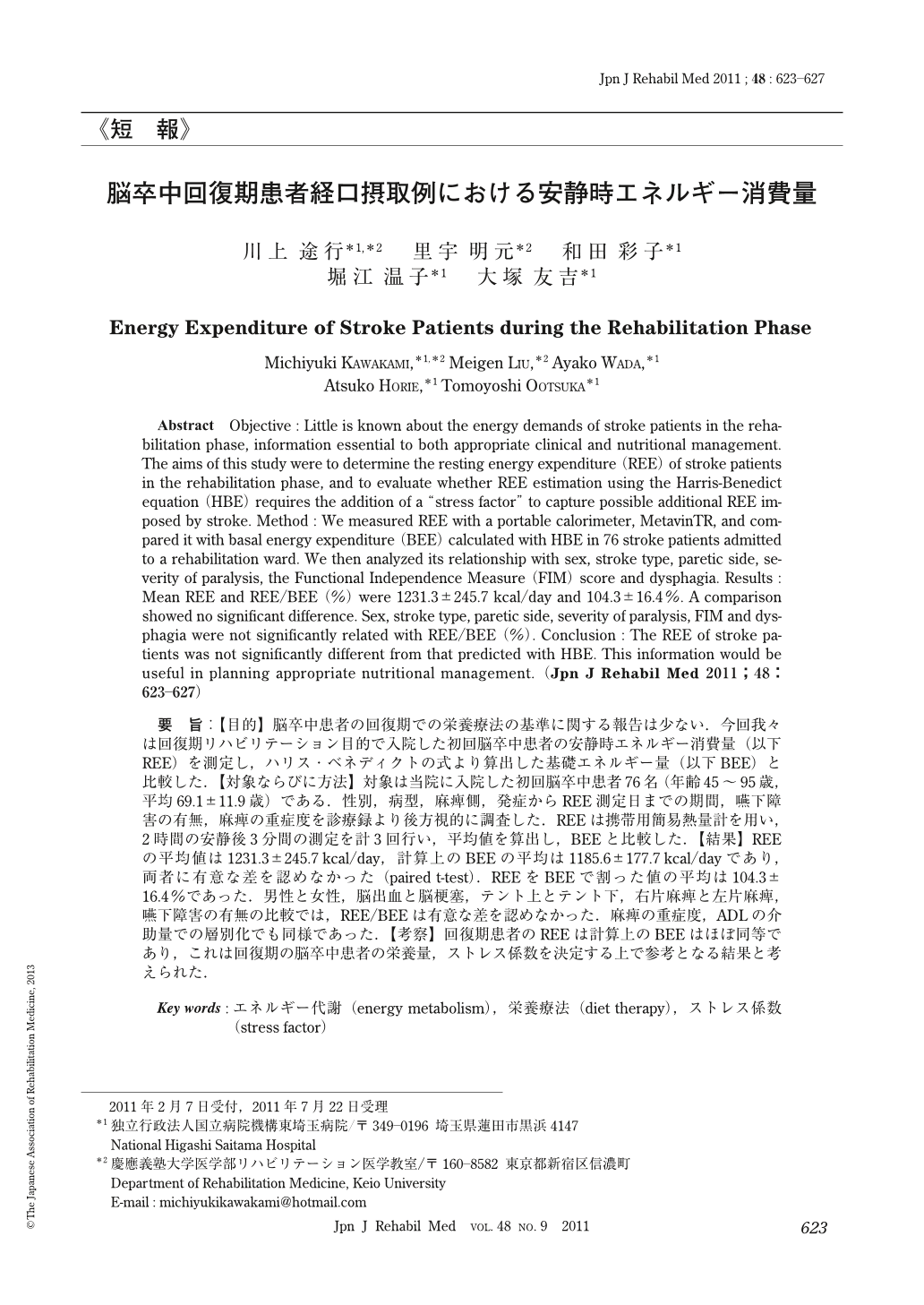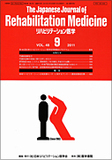Japanese
English
- 販売していません
- Abstract 文献概要
- 1ページ目 Look Inside
- 参考文献 Reference
要旨:【目的】脳卒中患者の回復期での栄養療法の基準に関する報告は少ない.今回我々は回復期リハビリテーション目的で入院した初回脳卒中患者の安静時エネルギー消費量(以下REE)を測定し,ハリス・ベネディクトの式より算出した基礎エネルギー量(以下BEE)と比較した.【対象ならびに方法】対象は当院に入院した初回脳卒中患者76名(年齢45~95歳,平均69.1±11.9歳)である.性別,病型,麻痺側,発症からREE測定日までの期間,嚥下障害の有無,麻痺の重症度を診療録より後方視的に調査した.REEは携帯用簡易熱量計を用い,2時間の安静後3分間の測定を計3回行い,平均値を算出し,BEEと比較した.【結果】REEの平均値は1231.3±245.7kcal/day,計算上のBEEの平均は1185.6±177.7kcal/dayであり,両者に有意な差を認めなかった(paired t-test).REEをBEEで割った値の平均は104.3±16.4%であった.男性と女性,脳出血と脳梗塞,テント上とテント下,右片麻痺と左片麻痺,嚥下障害の有無の比較では,REE/BEEは有意な差を認めなかった.麻痺の重症度,ADLの介助量での層別化でも同様であった.【考察】回復期患者のREEは計算上のBEEはほぼ同等であり,これは回復期の脳卒中患者の栄養量,ストレス係数を決定する上で参考となる結果と考えられた.
Abstract Objective : Little is known about the energy demands of stroke patients in the rehabilitation phase, information essential to both appropriate clinical and nutritional management. The aims of this study were to determine the resting energy expenditure (REE) of stroke patients in the rehabilitation phase, and to evaluate whether REE estimation using the Harris-Benedict equation (HBE) requires the addition of a “stress factor” to capture possible additional REE imposed by stroke. Method : We measured REE with a portable calorimeter, MetavinTR, and compared it with basal energy expenditure (BEE) calculated with HBE in 76 stroke patients admitted to a rehabilitation ward. We then analyzed its relationship with sex, stroke type, paretic side, severity of paralysis, the Functional Independence Measure (FIM) score and dysphagia. Results : Mean REE and REE/BEE (%) were 1231.3±245.7 kcal/day and 104.3±16.4%. A comparison showed no significant difference. Sex, stroke type, paretic side, severity of paralysis, FIM and dysphagia were not significantly related with REE/BEE (%). Conclusion : The REE of stroke patients was not significantly different from that predicted with HBE. This information would be useful in planning appropriate nutritional management.

Copyright © 2011, The Japanese Association of Rehabilitation Medicine. All rights reserved.


